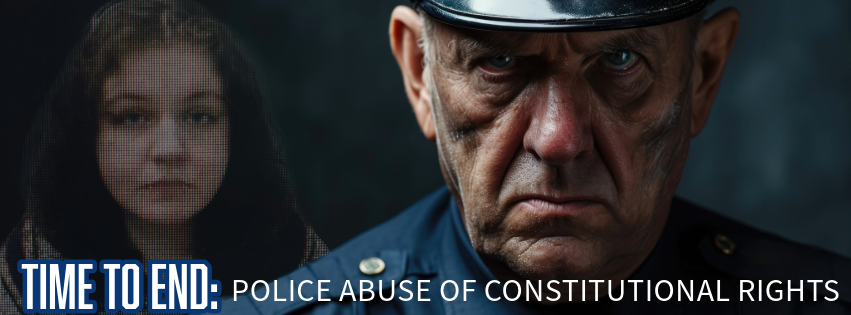PTSD and Police Response
Haunting Echoes: The PTSD Scars of Botched Mental Health Calls
The phone trembles in your hand, a lifeline in the churning sea of your mental health crisis. You dial 911, desperate for a calming presence, a trained professional to navigate the storm. But instead of a soothing voice, you’re met with flashing lights, a barrage of commands that pierce through your confusion, and the cold sting of metal snapping shut. This isn’t a scene from a nightmare; it’s the horrifying reality for countless individuals seeking help in their most vulnerable moments. The world you knew, a world where uniforms represented safety and security, shatters around you. In its place, a terrifying new reality emerges – one where seeking help becomes a gamble, a desperate plea that could result in further trauma.
Shattered Trust, Shattered Lives:
Imagine the aftermath. The tremors don’t stop when the sirens fade. The memory of that encounter, the fear and confusion you felt as you were restrained, the violation of your sense of safety – these become a constant companion, morphing into a crippling fear of authority figures. This isn’t just emotional distress; it’s Post-Traumatic Stress Disorder (PTSD), a cruel souvenir from a system that failed to provide the help you desperately needed. Everyday tasks become fraught with anxiety. A knock at the door can send your heart racing. The sight of a uniform can trigger flashbacks, transporting you back to that terrifying moment. You may find yourself avoiding social situations, withdrawing from loved ones, or struggling to maintain employment. The very system designed to protect you has become a source of terror, a constant reminder of the trauma you endured.
A Double-Edged Sword:
Mental health crises are already a terrifying experience. But when the system meant to protect becomes the source of further trauma, the wounds run deep. The fear of future encounters, the constant feeling of being on edge – these are the invisible scars carried by those who’ve been subjected to police abuse during mental health calls.
The Invisible Scars: Rape Trauma and Police Abuse – A Double Violation
The violation of a sexual assault is a trauma that shatters a person’s sense of security and safety. The aftermath is a harrowing journey through emotional turmoil, physical discomfort, and the constant struggle to reclaim a sense of normalcy. Yet, for many survivors, the nightmare doesn’t end there. When the system entrusted with protection becomes the source of further trauma, the wounds run deeper, leaving invisible scars that fester long after the initial assault.
Imagine the raw vulnerability of reporting a rape, of reliving the horrific details to a stranger in uniform. You reach out for help, a desperate plea for justice and support. But instead of a compassionate response, you’re met with skepticism, dismissiveness, or even victim-blaming, or worse, the perpetrator is set free and the police refuse to protect you from the ongoing mental abuse by the rapist. The process becomes a retraumatization, a second violation that undermines your trust in authority and the very system designed to protect you.
The fallout of this double trauma is devastating. Here’s what survivors might experience:
- Intensified PTSD Symptoms: Flashbacks of the assault may become intertwined with memories of the police interaction, creating a more complex and debilitating form of PTSD.
- Dissociation and Detachment: As a coping mechanism, survivors may disconnect from their emotions or feel a sense of unreality, making recovery even more challenging.
- Fear of Authority Figures: Trusting law enforcement becomes a near-impossibility, hindering future reporting of crimes and creating a sense of constant vulnerability.
- Delayed Healing: The emotional toll of police abuse can make it difficult for survivors to move forward with their healing journey.
This isn’t just a hypothetical scenario. Countless rape survivors have reported feeling dismissed, disbelieved, or even further victimized by law enforcement. This systemic failure creates a chilling effect, discouraging others from coming forward and perpetuating a cycle of silence and injustice.
Breaking the Cycle of Silence:
We can’t remain silent in the face of this injustice. We need a revolution in how mental health crises are handled. Here’s what needs to change:
Specialized Responders: Trained mental health professionals leading the charge, equipped to de-escalate situations and offer genuine support.
Trauma-Informed Training: Equipping law enforcement with the knowledge and skills to navigate mental health emergencies without resorting to force.
Prioritizing Mental Health Care: Investing in accessible and affordable resources for everyone, fostering a society that prioritizes mental well-being.
The Call to Action is Clear:
This isn’t just about statistics and broken systems; it’s about the countless individuals left with invisible scars. The trauma they experience isn’t confined to the immediate aftermath of the encounter. It bleeds into every aspect of their lives, shattering their trust in authority figures and making it even more difficult to seek help in the future. Imagine reaching out for help in your darkest hour, only to be met with fear and aggression. Imagine the fear that lingers, the constant vigilance, the sense of being a danger to yourself or others simply because you sought help.
We can’t stand by and allow this cycle of trauma to continue. Let’s build a system that prioritizes safety and compassion. Let’s ensure that a call for help is met with understanding and support, not force and fear. The future of mental health depends on it, and the lives of countless individuals hang in the balance. They deserve a system that treats them with dignity and respect, a system that recognizes a mental health crisis as a call for healing, not a threat to be subdued.





